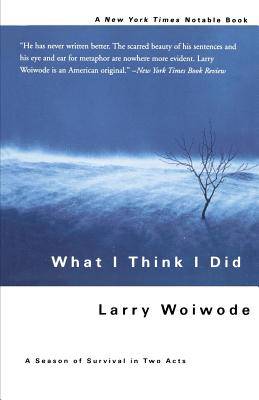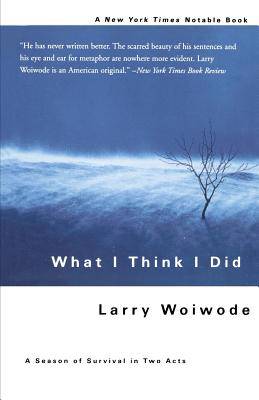
Bedankt voor het vertrouwen het afgelopen jaar! Om jou te bedanken bieden we GRATIS verzending (in België) aan op alles gedurende de hele maand januari.
- Afhalen na 1 uur in een winkel met voorraad
- In januari gratis thuislevering in België
- Ruim aanbod met 7 miljoen producten
Bedankt voor het vertrouwen het afgelopen jaar! Om jou te bedanken bieden we GRATIS verzending (in België) aan op alles gedurende de hele maand januari.
- Afhalen na 1 uur in een winkel met voorraad
- In januari gratis thuislevering in België
- Ruim aanbod met 7 miljoen producten
Zoeken
Omschrijving
In What I Think I Did, Larry Woiwode does two things at once: he survives the winter of 1996, the worst in North Dakota's history, and tells the story of his beginnings as a writer, especially the early days at The New Yorker leading up to the publication of his first book, What I'm Going to Do, I Think."Act One" revolves around the purchase, installation, and feeding of a giant wood-burning furnace to heat Woiwode's farm through that winter's record snow and cold. These acts form a central metaphor for exploring the sources of his writer's craft and for pulling together the threads of his boyhood and family life. "Act Two" recounts his university life and early New York days, his beginning a writing career, and his friendship with the young Robert DeNiro. The material on the late William Maxwell, of The New Yorker, is riveting. More than almost any other writer, Woiwode has the capacity to astound with his words. In this memoir, he is at the top of his form.
Specificaties
Betrokkenen
- Auteur(s):
- Uitgeverij:
Inhoud
- Aantal bladzijden:
- 336
- Taal:
- Engels
- Reeks:
Eigenschappen
- Productcode (EAN):
- 9780465078493
- Verschijningsdatum:
- 5/04/2001
- Uitvoering:
- Paperback
- Formaat:
- Trade paperback (VS)
- Afmetingen:
- 142 mm x 218 mm
- Gewicht:
- 412 g

Alleen bij Standaard Boekhandel
+ 65 punten op je klantenkaart van Standaard Boekhandel
Beoordelingen
We publiceren alleen reviews die voldoen aan de voorwaarden voor reviews. Bekijk onze voorwaarden voor reviews.









